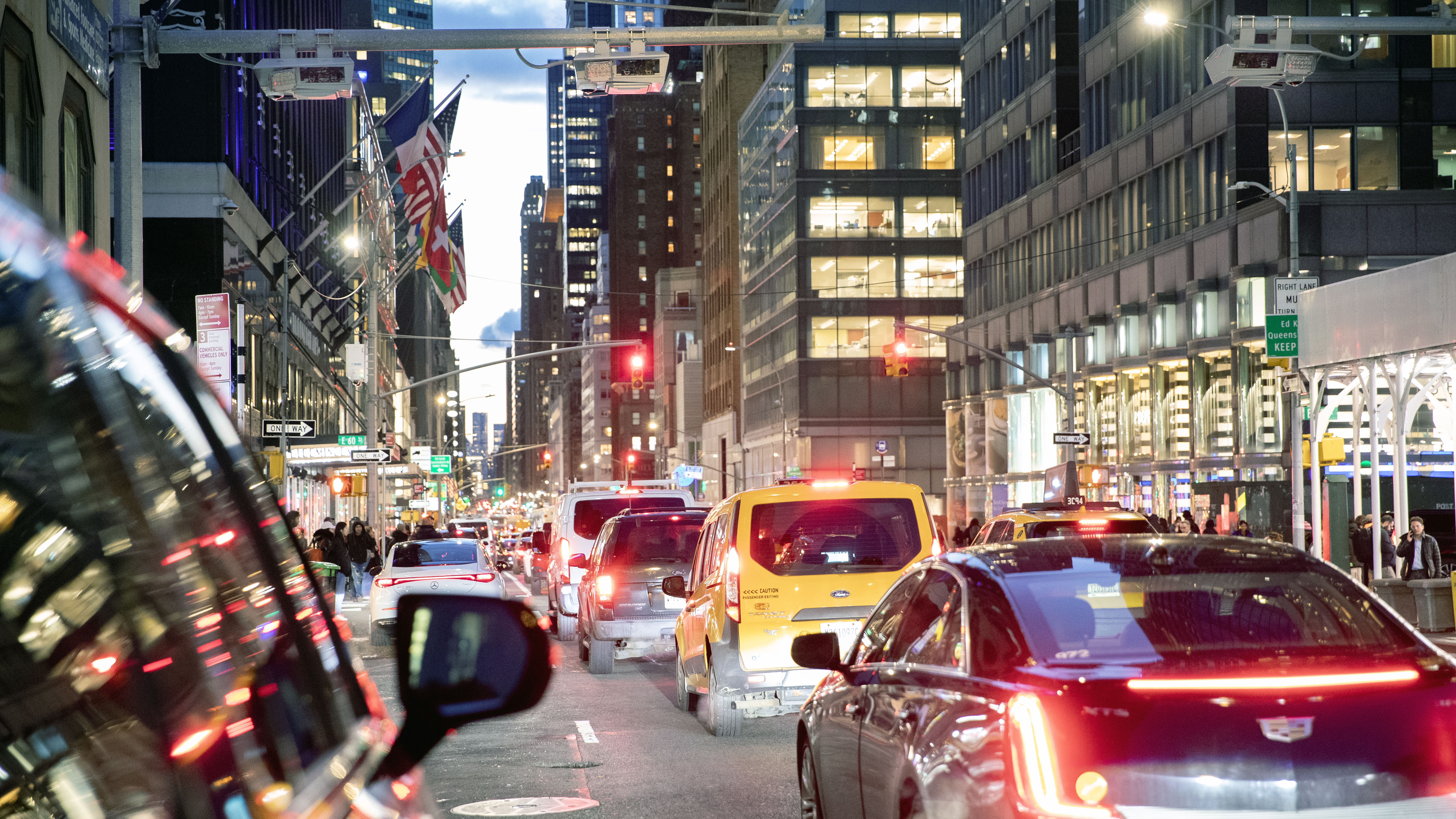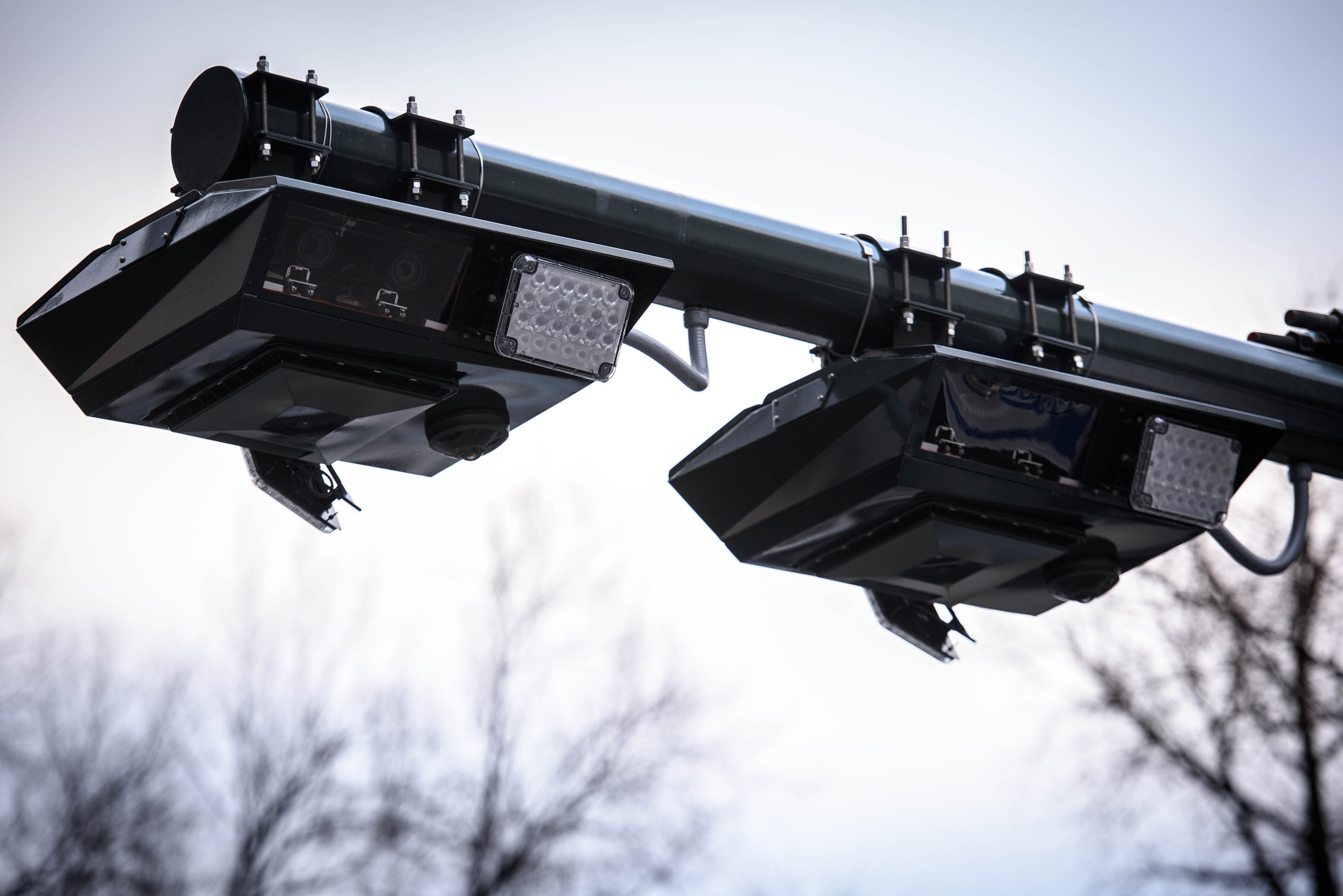What to Know
- The omicron variant is fueling a surge during the holiday season that is leaving tri-state residents waiting on long COVID testing lines and racing to stores to grab last-minute at-home test kits.
- Chief Physician Executive for Hackensack Meridian Health, Dr. Daniel Varga, told NBC New York that the best mitigator during the holidays is COVID testing.
- Despite New York City's excessive COVID testing lines, state residents will soon be able to order at-home tests from their living rooms.
The omicron variant is fueling a surge during the holiday season that is leaving tri-state residents waiting on long COVID testing lines and racing to stores to grab last-minute at-home test kits.
At least 192 omicron cases are confirmed in New York state with a fifth of those in the Big Apple, according to recent data -- though experts believe those numbers are significantly underreported. Gov. Kathy Hochul is urging the nearly 20% of New York adults yet to become fully vaccinated to do so.
Experts still do not know the level of illness severity associated with omicron, but it is growing more clear how quickly this variant can spread. Omicron is now the dominant strain of coronavirus in the United States, according to data released on Monday by the Centers for Disease Control and Prevention.
Get Tri-state area news and weather forecasts to your inbox. Sign up for NBC New York newsletters.
Omicron accounted for 73% of new COVID-19 infections last week nationwide, according to federal health officials.
Christmas is less than a week away, with upwards of 109 million Americans expected to hit the road this holiday from Dec. 23 to Jan 2, based on this year's AAA year-end travel forecast. This is an over 30% increase in planned travel during the same time last year.
According to the same index, airlines will see more than a 180% rise compared to 2020.
News
Chief Physician Executive for Hackensack Meridian Health, Dr. Daniel Varga, told NBC New York that the best mitigator during the holidays is COVID testing.
This time of the year is really difficult given family time, but you keep in mind the issues relative to risk. It's a continuum. A lot of people is riskier than a few, indoors is riskier than outdoors, mask off is riskier than mask on
Dr. Daniel Varga
Chief Physician Executive for Hackensack Meridian Health
Despite New York City's excessive COVIDtesting lines, state residents will soon be able to order at-home tests from their living rooms.
Officials announced on Monday a soon-to-be-launched online portal to request an at-home polymerase chain reaction (PCR) test to detect COVID-19. Details are expected to be released later this week. Test kits are to be sent overnight with free return shipping.
Given the scramble to find Covid tests, here's what to know about at-home kits on the market.
What At-Home Tests Are Available?
Abbott laboratories released the BinaxNow Covid-19 antigen self-test. It is a simple nasal swab test available over-the-counter at major retail stores and pharmacies. Results are given within 15 minutes, similar to a pregnancy test showing a faint line if the sample is positive.
One box contains two tests to be taken over the course of two to three days. The cost of one kit is $14.00 at Walmart.
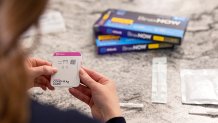
2. QuickVue
Quidel's QuickVue At-Home OTC COVID-19 Test is available without a prescription giving results within just over 10 minutes. The kit includes a nasal swab, tube with reagent solution, and testing strip. Results are given in a similar fashion to BinaxNow's test, displaying positive lines on the test strip.
One box has two tests and costs $35.00 at Walgreens.
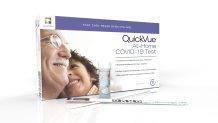
3. On/Go Covid-19 Antigen Self-Test
The On/Go COVID-19 Antigen Self-Test by Intrivo uses a shallow nose swab to perform the test on yourself. You must swab both nostrils, swirl it in the given solution tube, and dip the test strip for 10 minutes. Using an online app, results are tracked and shared.
One box has two tests and costs $30.00 on the On/Go website.
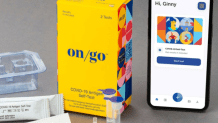
If planning on international travel, note the type of rapid antigen test taken for the CDC requirement. The test must be a SARS-CoV-2 viral test, a nucleic acid amplification test (NAAT) or antigen test, with Emergency Use Authorization from the Food and Drug Administration.
Certain examples of accepted tests are BinaxNOW COVID-19 Antigen Home Test, Ellume COVID-19 Home Test, and Cue Health COVID-19 Test.
Do At-Home Tests Work?
Antigen tests and polymerase chain reaction (PCR) tests both can detect COVID, but there are notable differences between the two.
The antigen test is frequently referred to as a rapid test. It detects the viral protein fragments, antigens, specific to the coronavirus. These can be done at home, urgent care centers, or clinics. Results can be given within 15 minutes.
The PCR is considered the gold standard when detecting the SARS-CoV-2 virus. This test is performed in a laboratory and replicates the genetic material, RNA, of the virus. The turnaround for results may take longer, about a couple of days, but the PCR tests are considered more accurate by healthcare experts.
When deciding to take either a rapid or PCR test, one expert believes both have their place when evaluating risk.
"These antigen tests are not as sensitive as the gold standard laboratory test, the PCR, which picks up more Covid at an earlier stage and a longer period of time than antigen tests do. What we've all come around to in the scientific community is that the ability of these at-home antigen tests to pick up disease at the right time is really valuable," said Chief Medical Officer at PhysicianOne Urgent Care, Dr. Jeannie Kenkare, to NBC New York.
The SARS-CoV-2 virus has mutated over time and is expected to continue mutating, resulting in a genetic variation over the course of the pandemic, according to the CDC.
The CDC warns that false-negative results may occur with any molecular Covid test given these mutating strains and to be aware of other factors, such as clinical observations, patient history, and repeat testing.
On average, so far, antigen tests range at a test positive agreement of about 85%.
According to Dr. Kenkare, the good news is that the current rapid tests do seem to be detecting omicron and delta variants. To her, the best use of these antigen tests is to find out whether residents are contagious as soon as possible to limit spread.
Holiday Planning
As northeast residents look forward to holiday gatherings, experts suggest taking the extra steps to ensure all family and friends are safe.
"If you are planning on seeing family this holiday season, it is important given that omicron is surging, to reconsider that at a start. But if you are definitely going, then the test taken is the best test," noted Dr. J.D. Zipkin, Chief Medical Officer at GoHealth Urgent Care.
Dr. Zipkin states if you test negative on a rapid Covid test but are still feeling symptoms, it is vital not to see family due to the chance of spreading some respiratory virus, particularly the flu which is now spiking in communities.
New York City's Health Commissioner Dr. Dave Chokshi shared tips for navigating the holidays during a press briefing on Monday. He recommends basing this year's events on the most vulnerable guest.
"For my own family, we’ve made some adjustments for holiday plans around my young daughter who isn’t yet eligible for vaccination. We decided to postpone some out-of-town travel until sometime in the new year, though we will still find ways to spend time with family, both locally and virtually," he shared.
All those NBC New York spoke with agree that a combination of getting vaccinated, boosted, and tested is the ultimate way to get over the COVID surge.
You Tested Positive At Home. Now What?
The CDC has different recommendations depending on results after using antigen tests for SARS-CoV-2 in community settings.
While the chance of a false positive on a rapid test is low, it could mean the virus is less prevalent. In this instance, it is recommended to take a PCR test to confirm positive results.
If asymptomatic with a positive result, experts urge to isolate and take necessary precautions until awaiting a second test confirmation.
For symptomatic patients, the CDC recommends isolating for 10 days since the first day of feeling symptoms.
New York City residents can call 212-COVID-19 to be linked to care.
Next Steps In Showing Proof
Doctors take an overall positive approach to Covid rapid tests. Looking to the future, antigen tests could be the key to navigating certain school, work, or travel requirements on top of vaccination.
"They are good tests when used in series. If you're just doing one test at one point in time, the antigen test isn't as good as a PCR test. But if you're doing a test with 24 hours between each other, then it provides a different message, so I do think there is a role for it," noted Dr. Kenkare, who believes this could be the way to move forward with additional protocols.

